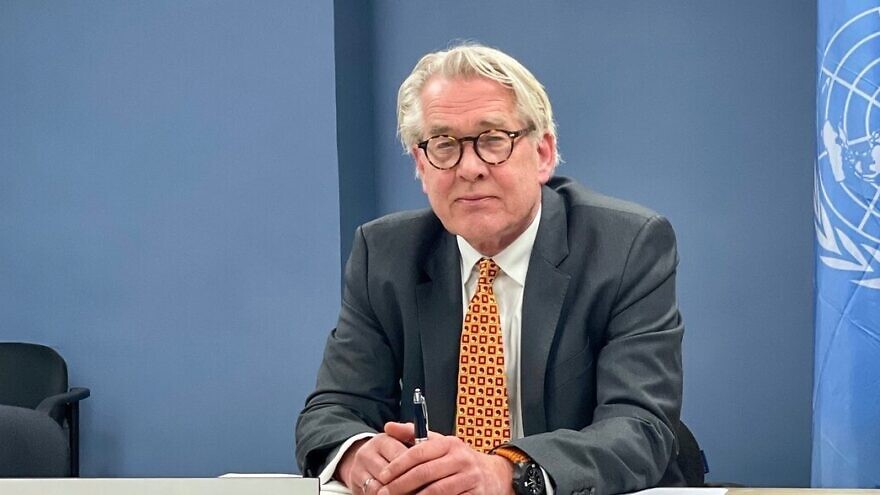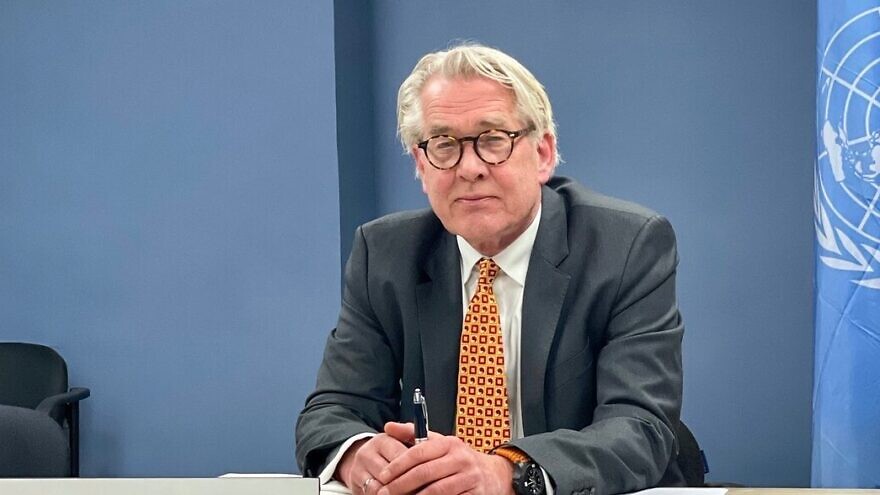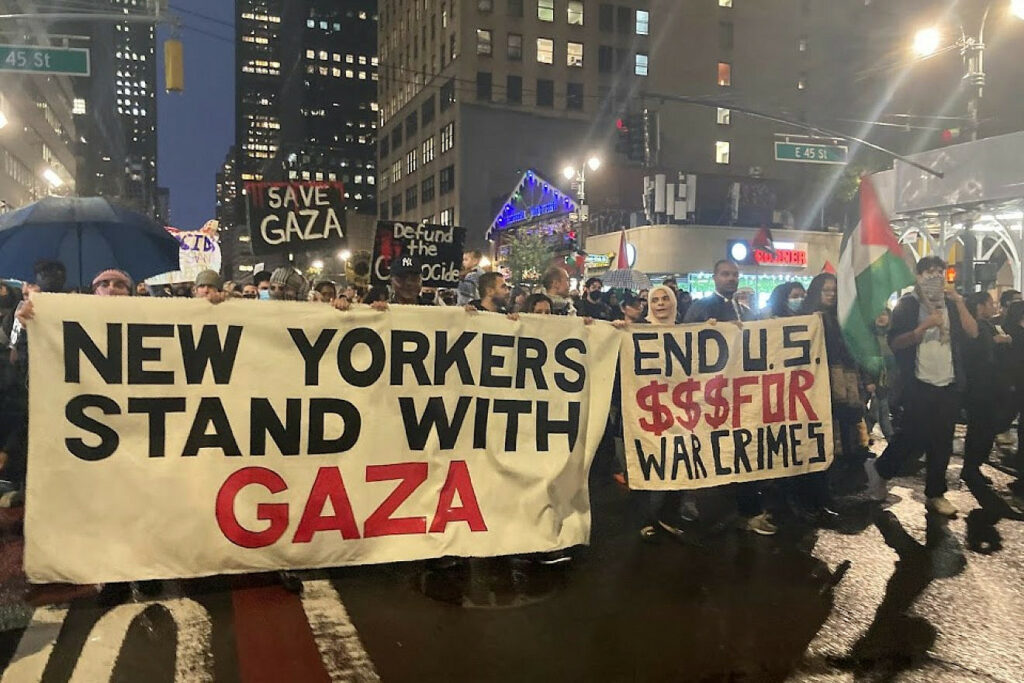
The ‘one-state reality’ is disappearing, UN Mideast envoy says
We need a ceasefire before Ramadan but the task is daunting, Tor Wennesland says.
For the United Nations’ point man on the Middle East, all options are on the table when it comes to the future of Israel and the Palestinians.
“I am very sure of one thing: The divide and the distrust that has come out of this conflict has made it necessary to look at the options that we thought were dead,” Tor Wennesland, the U.N. special coordinator on the Middle East peace process, told reporters in a rare press briefing on Wednesday.
The Norwegian longtime diplomat said that the “one-state reality” that many critics of Israel deem to be the future of the region is “disappearing by the people moving apart from each other,” citing the 150,000-200,000 Palestinians who no longer work in Israel after Oct. 7.
They “are not going there anymore—not only for the kind of prevention of them to cross by the Israelis, but because of the scare factor,” said Wennesland. “After 7 October, it goes so deep to the different societies. I have not seen anything like this, and I’ve been in this circuit since Oslo. I never thought I would see it.”

(source: JNS)
Wennesland said he is in regular contact with the likes of Israeli Foreign Minister Israel Katz and Defense Minister Yoav Gallant, along with others in the government. Israeli Prime Minister Benjamin Netanyahu has refused to speak with U.N. Secretary-General António Guterres since Oct. 7 in the wake of inflammatory comments Guterres made later that month.
While Wennesland would not confirm he was receiving the same cold shoulder from the premier, he said, “We are not sitting there kind of dreaming about a meeting that is not taking place.”
Asked about scaling up the delivery of humanitarian aid into Gaza, Wennesland said he was more focused on the politics of obtaining a ceasefire, where the devil is very much in the details.
“I can tell you that this agreement on a lasting ceasefire will be incredibly difficult to set up because we will have to go into details of names and the kinds of arrangements that are not a quick fix whatsoever,” said Wennesland. “So, even if the framework is in place, the details need to be very carefully worked out.”
He placed added importance on achieving a ceasefire breakthrough before Ramadan begins on March 11, give or take a day. The Muslim holy month typically brings added tension to Jerusalem, with clashes between Jews and Muslims and increasing Arab terrorist attacks, with violence often spilling over to other arenas.
“I hope we have the ceasefire before Ramadan. I can tell you flatly I don’t want to think about the consequences of that not happening,” said Wennesland. “We need to focus on avoiding the nightmares.”

(source: JNS)
Wennesland was at the podium when news broke that Netanyahu had rejected Hamas’s latest ceasefire demands. He said he wouldn’t offer comment, needing more context on the Israeli leader’s statement that Hamas’ demands were “delusional.”
In any case, Wennesland, known to be averse to speaking to the press, said that words aren’t going to make much of a difference, anyway. Especially since, he claimed, he didn’t have any to offer.
“It is very difficult to preach hope when you sit in a safe place to people that are sitting in the middle of what is hellish, and I think we should take a step back and not be too bold and think that the big words are what will make the big difference,” Wennesland said, instead focusing on putting “the necessary pressure on the points that would trigger change. But I can tell you, I’m a little bit lost on this.”
An important part of the change, he said, comes in the form of the day-after-Hamas scenario in Gaza. Wennesland, a veteran of the failed Oslo process, sees significance in having a continuous Palestinian governing presence in Gaza.
Asked by JNS whether the Palestinian Authority, mired in corruption and mismanagement and lacking a popular mandate to govern, is the appropriate selection to take over in Gaza, Wennesland responded negatively.
“There is and has been a discussion between the Palestinian leadership and the regional partners, and it’s ongoing. I think that’s very important,” he said.
However, he added the caveat that “we cannot have the [Palestinian] Authority we have today suddenly moving into Gaza. …You cannot take what you have [which is] static and just move it as a chess element and plant it into a totally different context for which it cannot be seen as fit.”
He said the dynamics in both Israeli and Palestinian politics are also affecting the day-after scenario.
“That is why I’m rejecting to take what we have and smacking it on Gaza and thinking it would work. Everybody knows it won’t,” said Wennesland.
He also pointed to a daunting road ahead for those Gazans who evacuated the north of the Strip, which was hard hit during Israel’s pursuit of Hamas. Wennesland said those planning the reconstruction process don’t know how much effort will be needed to perform essential work such as repairing roads and clearing explosive ordinances.
Just to clear the rubble would take 18 months, Wennesland predicted optimistically. A rapid damage assessment conducted by the World Bank, European Union and United Nations should be completed soon.
“Don’t think about the quick jump into reconstruction of the nice villas,” said Wennesland. “It won’t happen if we are not getting the conditions right.
The post The ‘one-state reality’ is disappearing, UN Mideast envoy says appeared first on Israel365 News.
Israel in the News